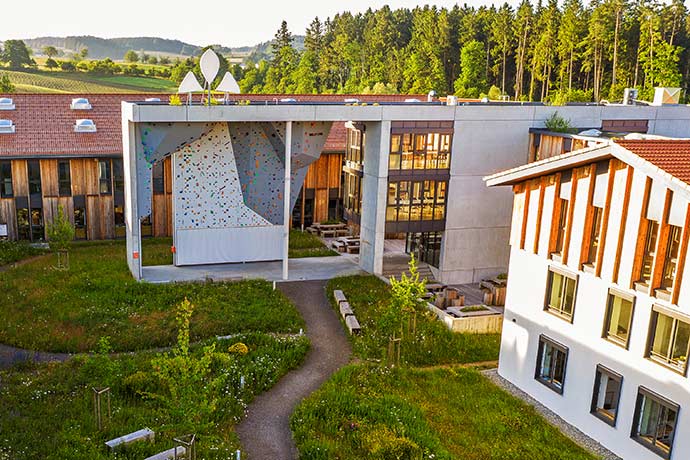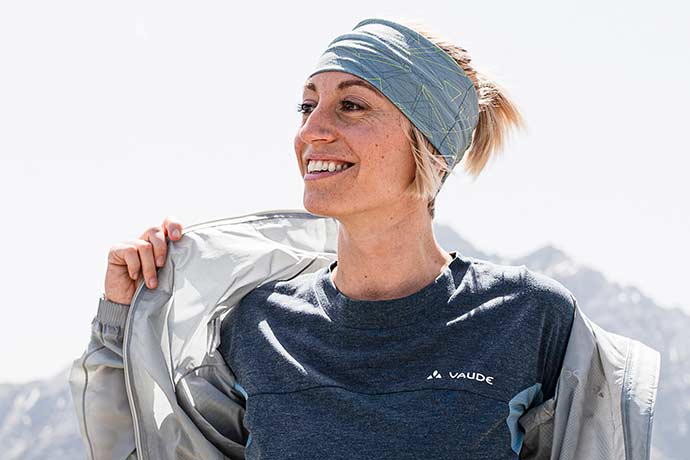Biodiversity at VAUDE: Our commitment to the protection of species diversity
The loss of biodiversity is one of the greatest challenges of our time. According to the World Economic Forum's Global Risk Report 2023, biodiversity loss is one of the four most significant global risks of the coming decade. since 1970, the global population of wild vertebrate species has declined by an average of 69%, with 100 animal and plant species becoming extinct every day. the reasons for this loss are manifold: increasing land sealing, deforestation, pollutants, the intensive use of land for agriculture and climate change all play a decisive role.
Biodiversity is essential for the survival of humans and nature. Biodiversity, healthy ecosystems and genetic diversity provide us with valuable "services" such as fertile soils, clean water, food and medicinal substances.
As a company that is closely connected to nature, VAUDE has made it its mission to protect and promote biodiversity. We bear responsibility not only for our actions at the site, but also along our entire supply chain.
VAUDE implements numerous biodiversity measures at the German company site
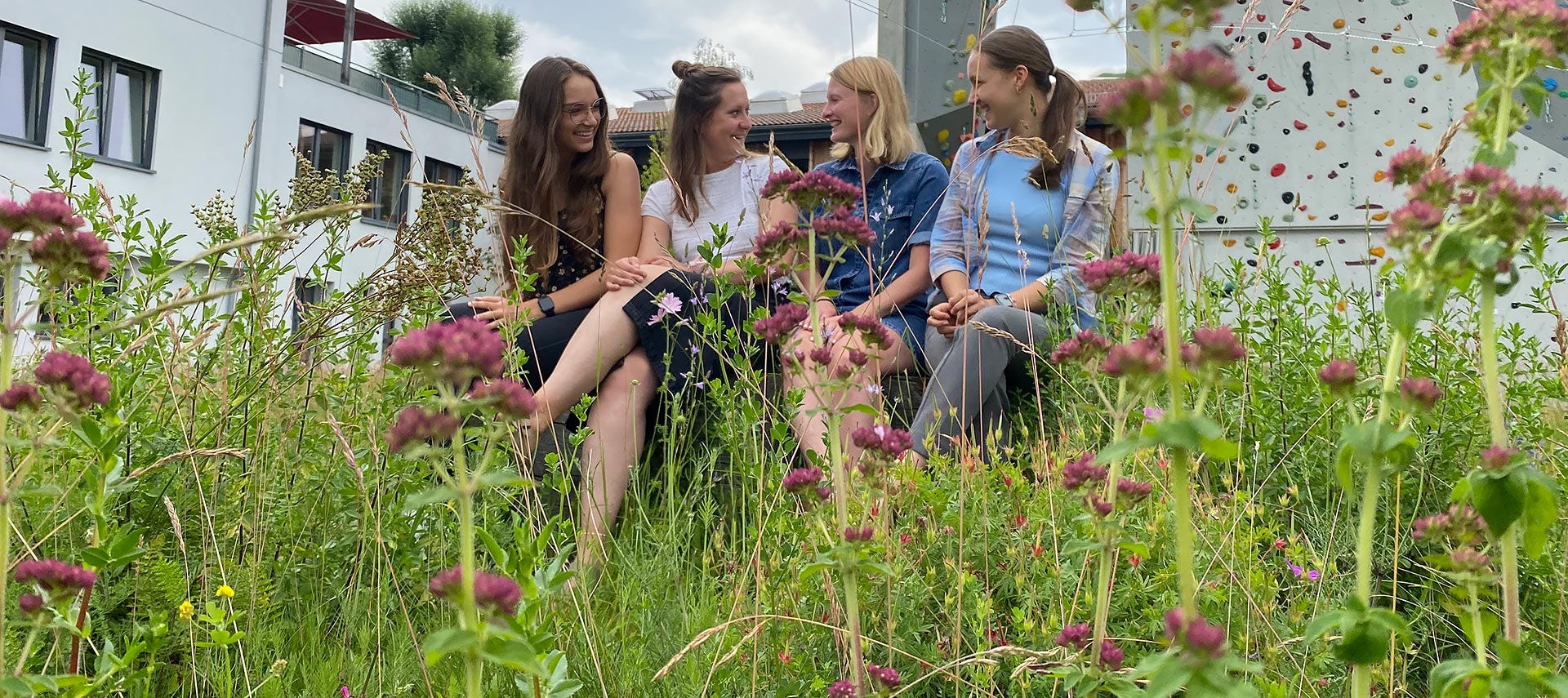

In 2010, we were one of the very first companies to carry out the EU Business & Biodiversity Campaign 's biodiversity check. Together with the Lake Constance Foundation , we determined the impact of our business activities on biodiversity. Since then, we have been working on the implementation of our biodiversity strategy.
At VAUDE, we implement biodiversity projects directly at our site in Tettnang-Obereisenbach. Our goal is to make our company premises a habitat for native plants and animals and thus contribute to the preservation of biodiversity.
One of the central projects in this context is the extensive greening of the VAUDE production facilities. The production hall in which the are manufactured is equipped with a green flat roof, which not only creates a habitat for plants and insects over an area of 1,500 square meters, but also acts as thermal insulation and soundproofing. This "green oasis", which does not need to be mowed, provides a habitat for birds and insects and helps to increase energy efficiency.


In addition, we have unsealed 1,500 square meters of parking space and converted it into a flowering wild meadow. This species-rich rough grassland wilderness provides a habitat for numerous insects and helps to improve soil quality. We have also planted around 5,000 early-flowering bulbous plants, including crocuses and daffodils, to provide important food for insects in the spring.
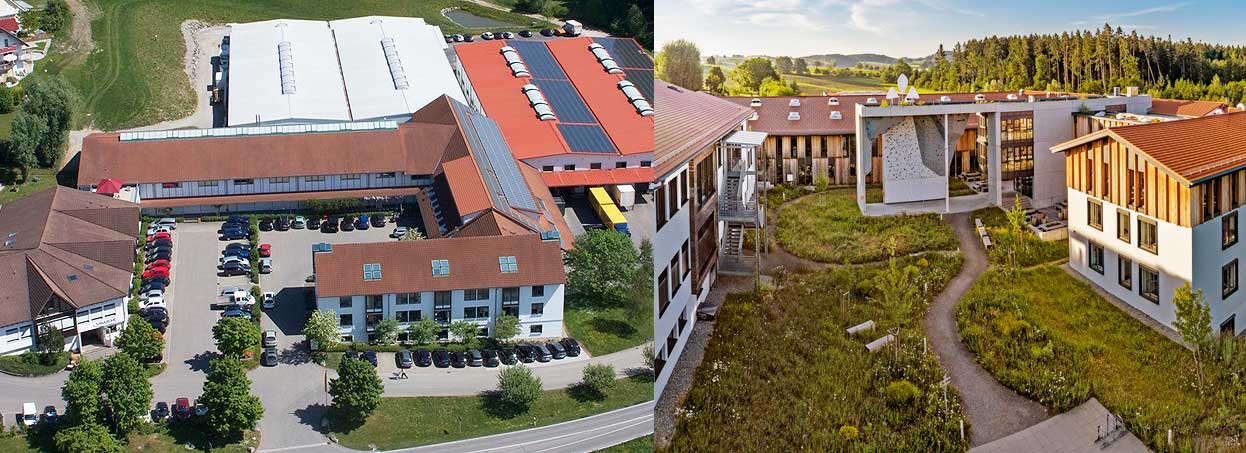

Natural beehive on the VAUDE campus
Another exciting project is our involvement in the HIIVE project. Together with the start-up "HIIVE - better for bees", we have developed a beehive with VAUDE Professional that mimics the natural habitat of bees in tree hollows. This near-natural environment offers the bees better protection and supports their health and longevity, as it is not geared towards intensive honey production. We have developed a weatherproof cover for this innovative beehive made from recycled materials that is bluesign® certified. This means that it is free from harmful chemicals, making it ideal for use in the hive.
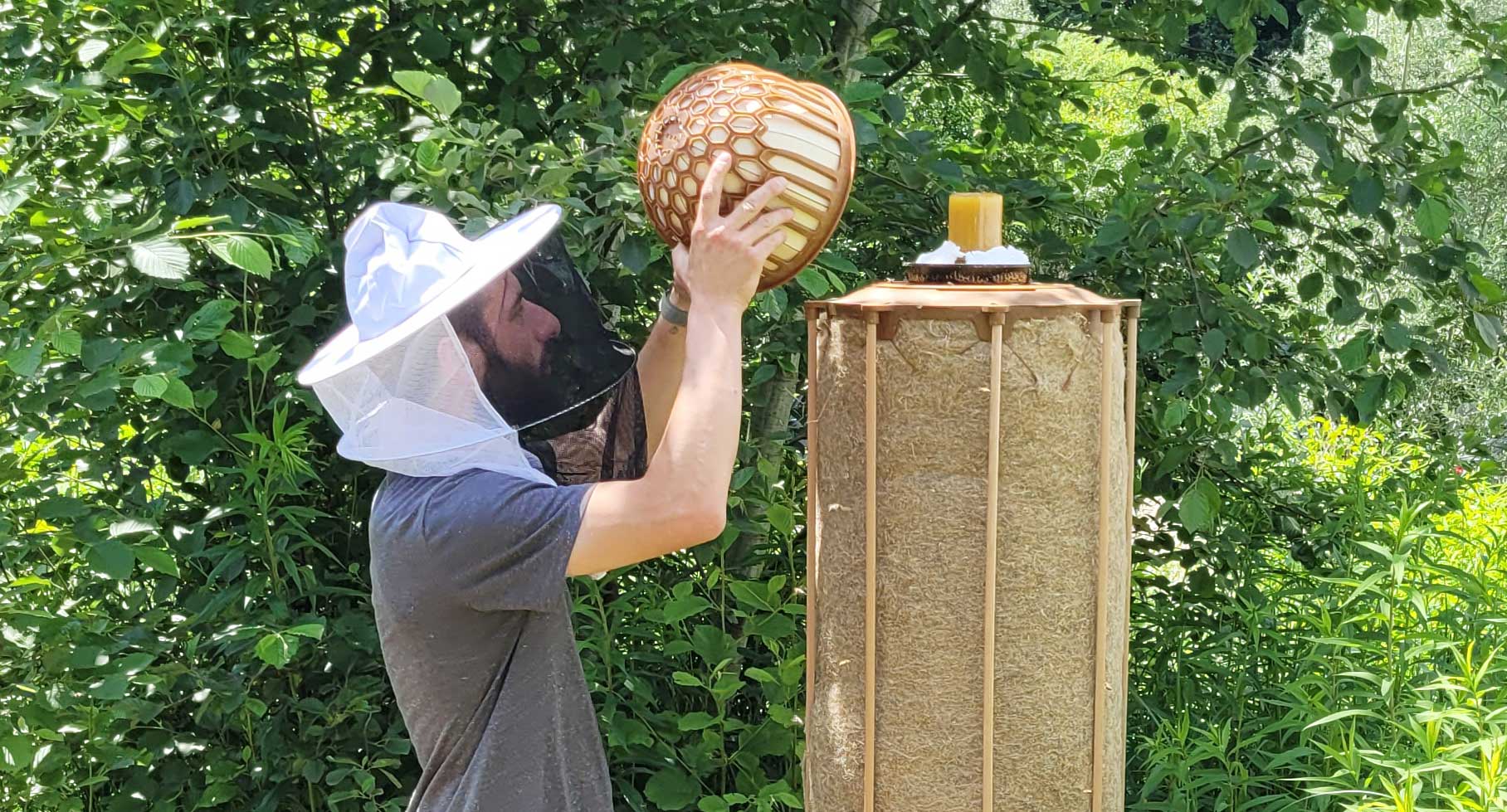

We have set up two of these innovative beehives directly on our company premises. They are looked after by our employee and beekeeper Thomas Van Pelt, who maintains and monitors the hives. This measure supports pollination by insects for the local ecosystem and contributes to the genetic diversity of the plant world, which in turn benefits other insects.
VAUDE is part of the Tettnang-Obereisenbach regional biotope network, which is committed to preserving biodiversity in the region. Cooperation with other companies and organizations is a central component of our commitment, as the protection of biodiversity is a task that can only be accomplished together.
Learn more about the efforts to preserve biodiversity on the VAUDE company premises.
Be inspired by other local biodiversity measures at VAUDE
- VAUDE fire ponds are small biotopes: Toads, frogs, dragonflies and other aquatic animals have found a home here.
- Renaturalization of a stream: This crosses our company premises and creates a natural water source for animals.
- Insect hotels, bird and bat boxes: These shelters offer protection to numerous animal species.
- Table beds with edible herbs: Grasses and herbs that grow here contribute to biodiversity and enrich our food.
- Wild hedges: These provide food for birds and insects and are refuges for hares, hedgehogs and other animals. The wild hedges consist of native, endemic hedge plants such as Cornell cherry, rock pear or hazelnut.
- High trunks: These provide nesting sites for birds, rodents and insects and are a source of food.


Measures in the VAUDE supply chain
For us, biodiversity does not end at the boundaries of our company premises. Rather, it is our task to take measures to protect biodiversity in the global supply chain as well. The textile industry can have a negative impact on biodiversity due to intensive land use, harmful chemicals and excessive use of resources.
In 2023, we launched a biodiversity pilot project in our key production countries such as Taiwan, Vietnam, China, Portugal and Italy. A risk analysis was carried out to determine the regions in our supply chain where biodiversity risks are particularly high. The result: Taiwan, Portugal and Italy have a high incidence of endangered species, and Taiwan is home to a particularly large number of key species that are essential for the ecological balance.
The next step will be to collect further data (including via the WWF Biodiversity Risk Filter, interpret this data and use it to develop a VAUDE biodiversity strategy for the supply chain.
Our goal is to minimize the negative impact of our production on biodiversity. This includes, among other things:
- Reduction of chemicals in production, e.g. through our strict bluesign® system, which ensures that no hazardous substances are used.
- Responsible water use: We aim to minimize water consumption in production through projects to improve water efficiency.
- More biodiversity in land use: We are looking into ways of greening production sites and creating biotopes around factories.
VAUDE works closely with other brands and organizations to find solutions for the entire textile industry.
Biodiversity loss is a risk for the economy
The dramatic loss of biodiversity not only means fewer insects, but is also a real risk to the economy and our livelihoods on this planet. According to the internationally recognized scientific study by the Stockholm Resilience Center, six of the nine planetary boundaries have already been exceeded - one of which is biodiversity. We at VAUDE are convinced that the economy must also contribute to a change that creates solutions instead of further contributing to the problems. According to World Bank estimates, biodiversity loss could cost the global economy 2.7 trillion US dollars annually by 2030.
Participation wanted: tips on how you can get active
Each and every one of us can make a contribution to protecting biodiversity - in everyday life, in the garden or on the balcony. Here are some tips on how you can take action:
- Provide variety in your garden with lots of flowers. Because no insect will find food on a blade of grass or a stone. Wild corners in the garden are a feast for bees, insects and co.
- Short-mown lawns are bad for nature. Wild meadows, where weeds are also allowed to grow, are clearly better. Wildflower mixtures with cornflowers, poppies, daisies, snapdragons and bluebells not only look good, but also provide food for insects with their flowers.
- Plant lots of flowering plants: in addition to flowers, perennials and hedge plants such as alder, rock pear, sloe, hawthorn, wild roses and coneflower. A long succession of flowers is ideal for bees, bumblebees and other insects. In the fall, the fruits are a good source of food for birds and rodents.
- When buying, look out for endemic plants: these are plants that occur in our region and are best adapted to the needs of our wildlife. Avoid plants such as summer lilac, cherry laurel or Indian balsam, which spread uncontrollably and displace our native species.
- Don't use pesticides or weedkillers, but use natural products where possible, such as nettle decoction against aphids, to maintain the biological balance of the garden. It is best to pull out weeds instead of using chemicals. Many pests can be controlled with other species.
- Put up an insect hotel - wild bees and the like can nest in it. You can find building instructions here.
- Leave faded bushes, shrubs and shrubs in the fall. Larvae of various insect species will find shelter here for the winter. It's best to follow this rule of thumb: when the crocus blooms in spring, the shrubs are cut back.
- Buy organic: Intensive farming is a major threat to biodiversity because pesticides, fertilizers and nitrates contribute to a decline in the diversity of microorganisms and birds.carefully cultivated soils, on the other hand, provide a home for more organisms.
- Support nature conservation organizations: Various organizations such as the WWF, NABU, BUND or Greenpeace are committed to preserving biodiversity locally, but also worldwide. And if you get involved financially or actively, you have the feeling that you can make a difference.
- Refrain from planting gravel gardens. Biologically speaking, many of these gardens are dead because they provide neither food nor habitat for most animals and plants.
You can find more tips from the WWF here (in german).


